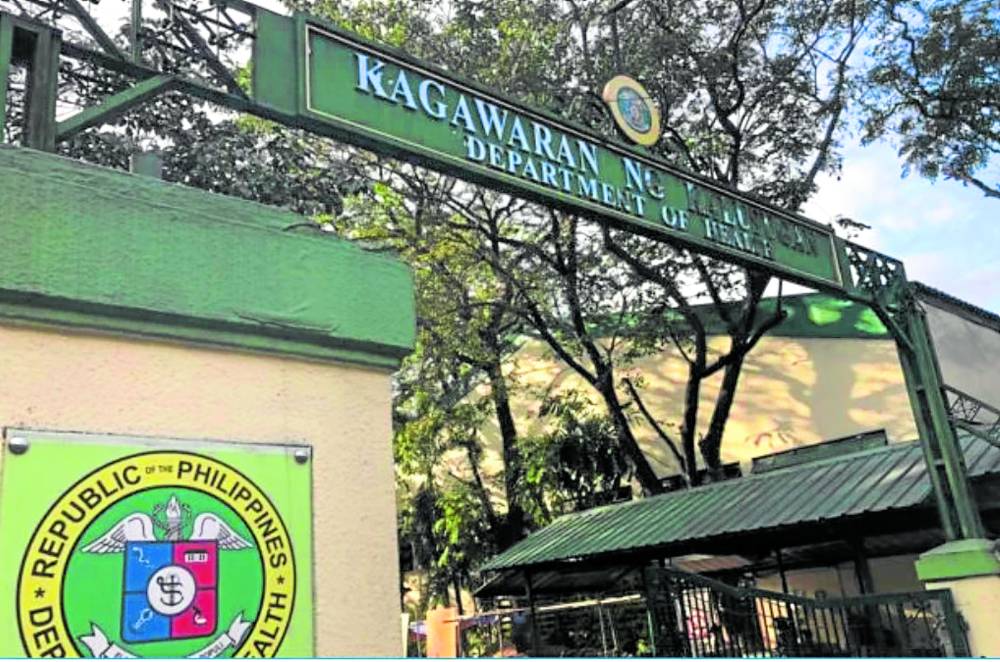
Facade of the Department of Health office in Manila. INQUIRER FILE PHOTO
MANILA, Philippines — Indigent senior citizens have to wait a little longer to get free annual flu shots even amid the expected surge in influenza-like illnesses (ILIs), as the Department of Health (DOH) said on Friday it is still in the process of procuring these doses.
The DOH said the submission of bids on the procurement of the flu vaccines was scheduled on Friday. But this was the fifth time the procurement had been rescheduled since the department published its invitation to bid for the project in June.
Health experts and advocacy groups had been urging the DOH to roll out the free flu shot as early as May before the expected onset of the rainy season. The department had earlier allotted P1.628 billion for 5.1 million doses of the influenza polyvalent vaccine to be purchased for senior citizens under the National Immunization Program.
Top priority
According to vaccine expert Dr. Lulu Bravo, the DOH has yet to fulfill its mandate to protect the elderly through an early vaccine rollout.
“Our seniors cannot afford to be left exposed and vulnerable. Every day that passes without these vaccines puts them at greater risk, especially with the ongoing rainy season and the threat of mpox. Their health and well-being should be our top priority,” said Bravo, executive director of the Philippine Foundation for Vaccination.
Indigent seniors
Roderick Alapar, lead convenor of grassroots organization Bayan Bakuna, called for the implementation of Republic Act No. 9994.
“The Expanded Senior Citizens Act of 2010 mandates the protection of our elderly, and it’s imperative that they receive the flu vaccines they are entitled to. We cannot stand by and allow our seniors to suffer the severe consequences of a vaccine-preventable illness like influenza, especially during such a critical time,” he said.
Under RA 9994, the DOH is tasked to procure for indigent senior citizens vaccines against influenza and pneumococcal or serious bacterial infections. These are then redistributed to local government health centers which are tasked to administer the vaccines for free to poor senior residents.
Out of about 9 million senior citizens in the country, around 4 million are considered indigent. Under the said law, indigent seniors are those age 60 years old and older who are frail, sickly, or with disability, and without pension or a permanent source or income, compensation or financial assistance from their relatives to support their basic needs.
High-risk period
Vaccinations are generally conducted in the third or fourth quarter of the year before the flu season, which starts in October and peaks during the colder months of January and February.
Health advocates noted the need to accelerate the procurement of flu vaccines during this high-risk period, as influenza can worsen symptoms of other chronic diseases, and severe cases can lead to pneumonia, stroke and heart attack.
According to advocacy groups, 67.1 percent of influenza-associated deaths each year occur among adults 60 years and older.
ILIs are a group of illnesses with common symptoms, including fever, cough, sore throat, colds, body aches and headaches. According to the latest DOH data, a total of 102,216 cases of ILIs in the country have been recorded from Jan. 1 to Aug. 24.